Best smart light switches in 2021
The best smart light switches will give you extensive control over your lighting, being capable of much more than just switching them on and off!
Being linked to the cloud, you can control your smart light switch from your phone. This means you can remotely schedule when your lights switch on and off, useful for when you’re taking a holiday. You can also control them with a voice assistant, so no switches are even necessary! However, with so many options, choosing the best smart light switch can be intimidating. That’s why we’ve pulled together a list of the top performers and have broken down what each can really do.
What are the best smart light switches?
After putting countless models to the test, we would recommend the GE C-Start Smart Switch Motion Sensing Dimmer as the best smart light switch overall. It’s compatible with most smart home hubs, including Alexa, Google Home and Apple HomeKit and features built-in motion sensors, so the lights will automatically switch on when you come home. It also comes with an ambient light sensor, which means it will self-adjust the brightness if there’s daylight or sunlight in the room, ultimately saving you money on your energy! With a reasonable price tag of $64, there’s little to argue against this product. The dimmer switch even works with a wide range of bulb types.
The design of our winner admittedly makes a statement. If you’re looking for something more subtle, then Leviton’s Decora smart dimmer might be to your taste. It’s easy to install and doesn’t require a hub. Although, it doesn’t feature a motion or ambient light sensor like our winner and it lacks two-factor authentication.
If you’re already using Philips Hue lights and don’t want to go to the effort of replacing your switches, then you should consider the Philips Hue Dimmer. At $25, this is a cheap option with a very user-friendly design. Simply pop it on your wall to install, no wiring necessary, and remove it to use as a remote control. Bear in mind that you will have to leave your regular lights switched on to use this though.
The best smart light switches you can buy today
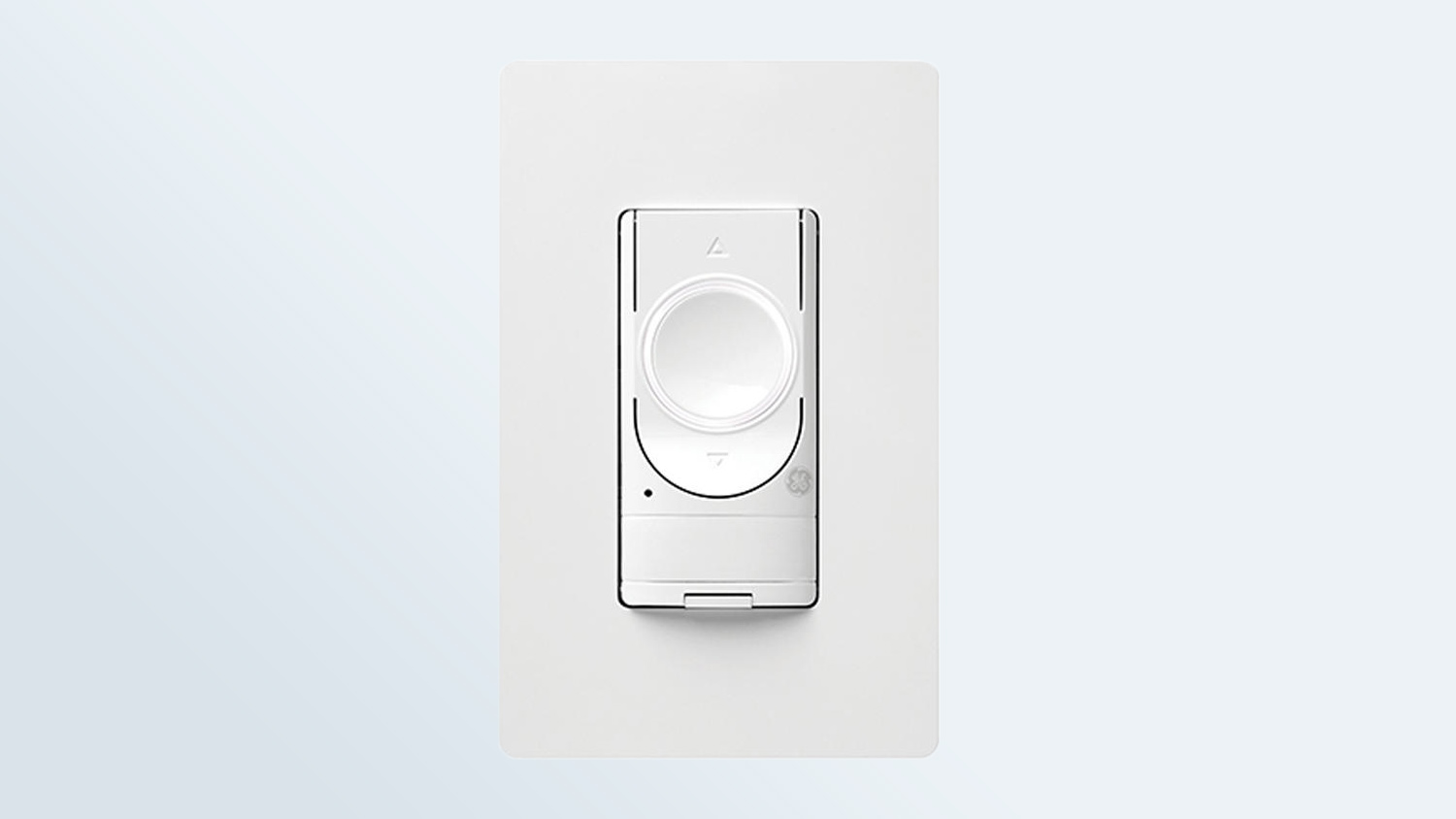

The GE C-Start Smart Switch isn’t the sexiest or sleekest, but it’s the best smart light switch because it gets the job done and is packed with features. The Wi-Fi-connected switch works with all kinds of bulbs, has apps for iOS and Android, and lets you control lights with a touch, voice, motion or remotely via a smartphone.
Installation, as with most other smart switches, requires a neutral wire, but it’s fairly straightforward. The switch includes an ambient light sensor (so it can be set not to come on in daylight) and a motion sensor to automatically trigger the light. The latter feature worked seamlessly. If you turn it off with the switch, after a few minutes C-Start will engage the motion sensor again, or you can disable the sensor via the app in case you don’t want it switched on in the middle of the night.
Like other Alexa-enabled switches (it also works with Google Assistant and HomeKit), the C-Start dimmer responds to voice commands, but the C by GE Android app needs some work; setting up an automation for a room is confusing, and it can even be difficult to tell when you’ve scheduled it to go on and off. At around $60-$70, it’s more expensive than most other smart light switches, but the C-Start Smart Switch gives you a lot for the price.
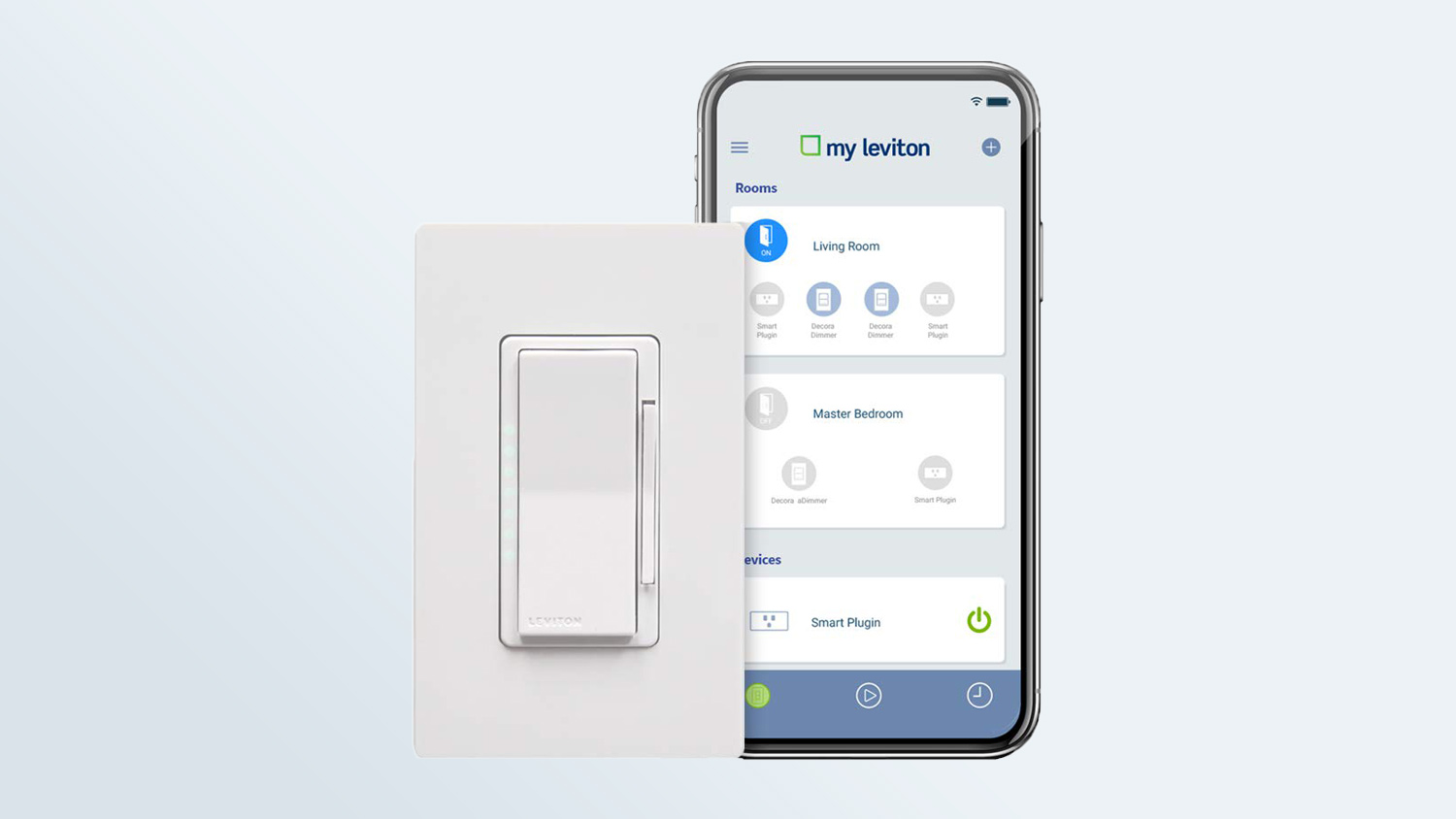
The second-generation Leviton Decora Smart Wi-Fi Dimmer looks much the same as the original — an unobtrusive paddle switch with a smaller toggle on the right. However, installation is a bit easier in this model. As before, it works with three-way switches, but Leviton also released an Anywhere Dimmer (sold separately), which lets you add a secondary light switch without having to connect any wires.
The Leviton Decora works with Alexa, Google Assistant HomeKit, August and IFTTT, but it supports fewer smart home systems than Lutron does. The Leviton also lacks the geofencing feature found in Lutron’s app. It also lacks two-factor authentication, so we wouldn’t recommend using it unless you’re pairing it with HomeKit.
Read our full Leviton Decora Smart Wi-Fi Dimmer review.
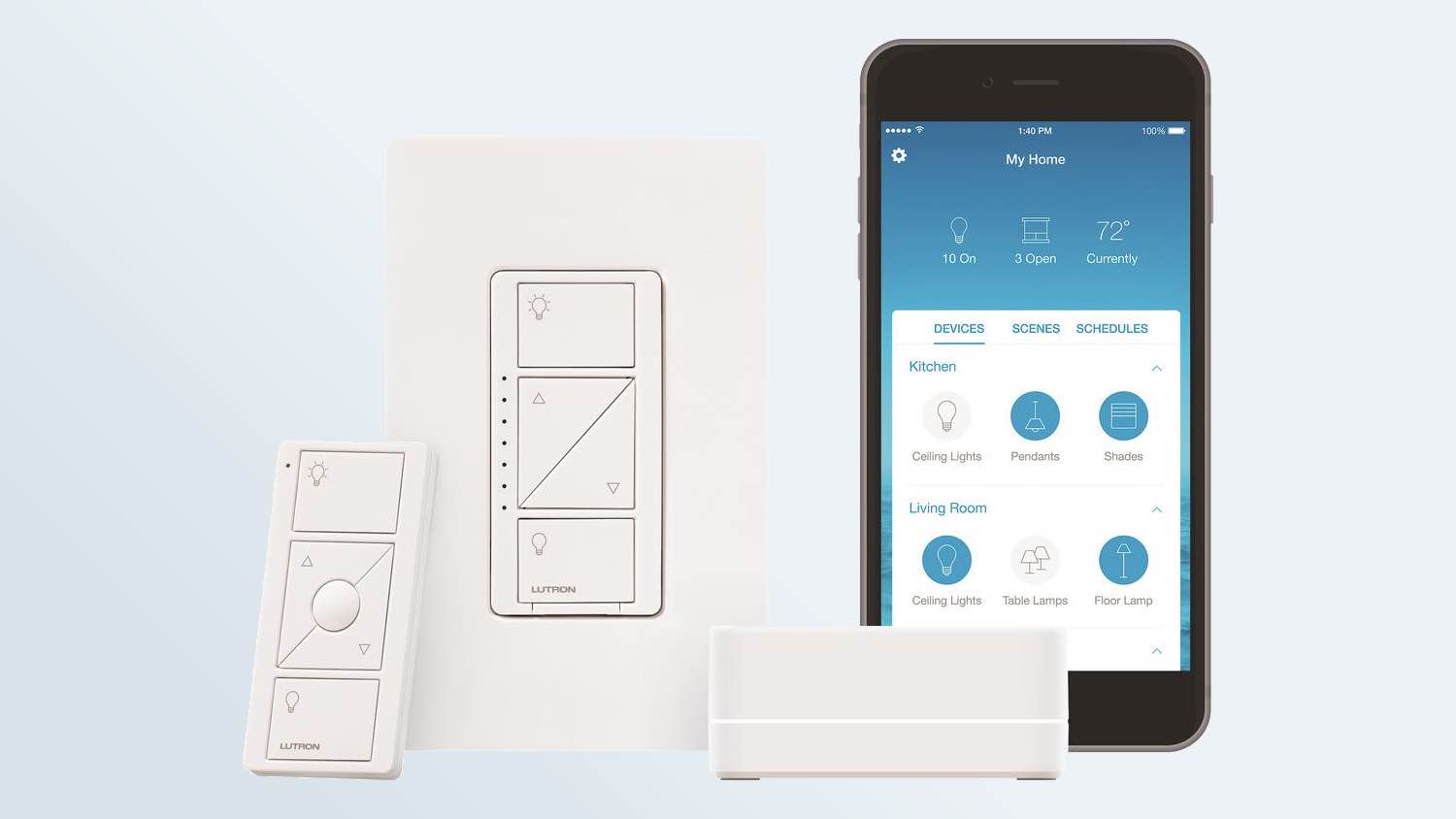
The Caséta line of switches from Lutron offers an impressive list of features: geofencing, which means your lights will automatically turn on or off when you leave or arrive at home; the ability to schedule your lights to turn on or off at particular times or days; dimming capabilities; and compatibility with a long list of smart home platforms. You can also control the system using your voice through Amazon Alexa and Google Home, among many others. It’s one of the best HomeKit devices, too.
Lutron’s smart starter kit comes with one in-wall switch, one wireless remote and one smart bridge (hub), which can also be used to connect other Lutron products to the cloud and control them.
The switch itself looks high-tech, with several buttons laid out to control the numerous options Caséta offers. Lutron has gone for function over fashion for the most part with this dimmer: The white and gray buttons are front and center, not hidden by touch-sensitive controls, as is the case with other dimmers in this category.
The only downside is that the switch, like all of Lutron’s products, must be linked to the Smart Bridge (you can get it packaged with the switch for $90). The bridge itself must be plugged into your router so that you can control it from your smartphone.
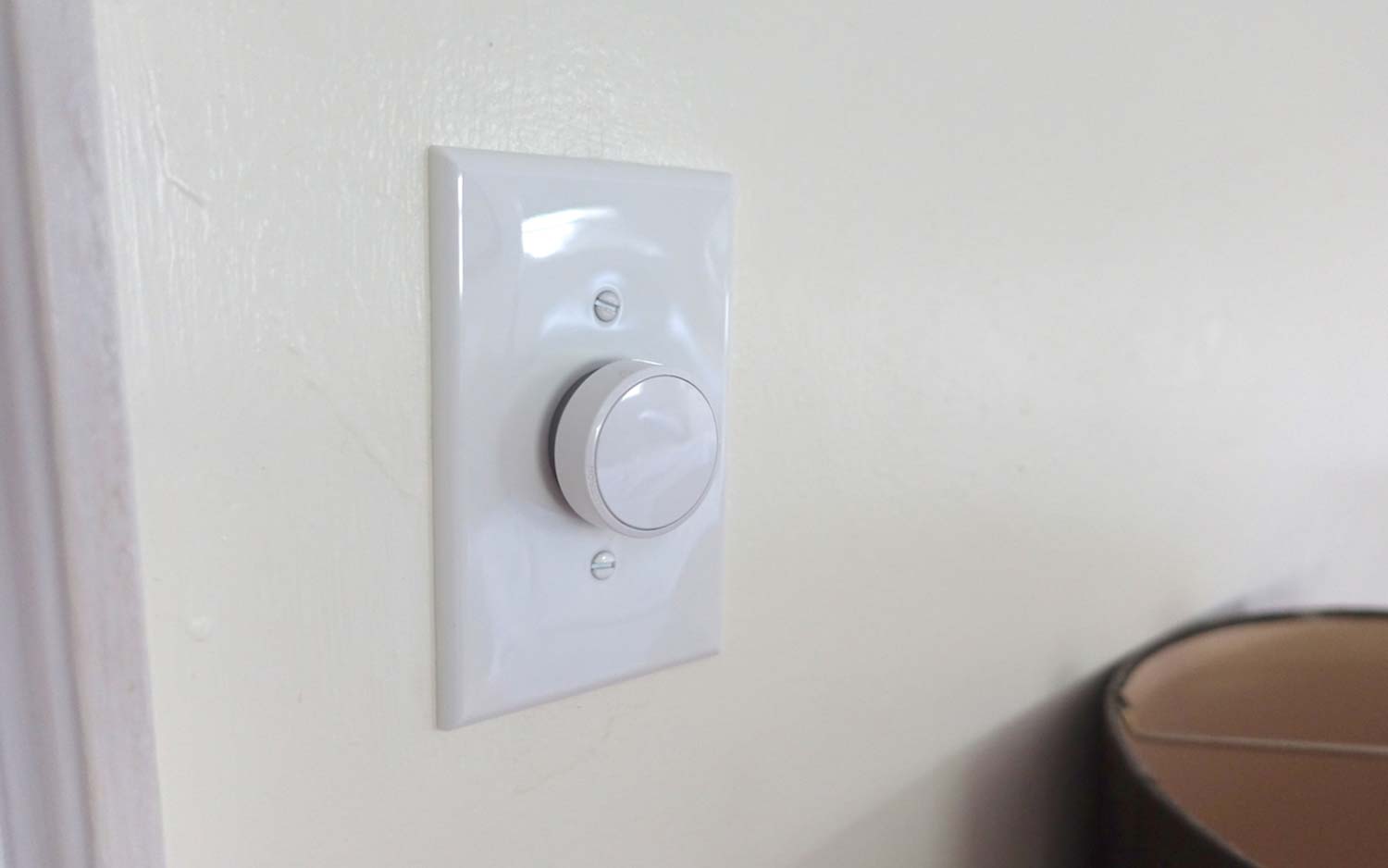
In some households, wall switches control an outlet, rather than a light fixture, so you can plug in a floor or table lamp, and then switch it on or off from your wall, rather than the lamp itself. But if you also use that outlet for devices that have to stay on all the time, like a clock radio, then you have to tape over the wall switch or resort to some other method to keep from accidentally flipping the switch and turning off power to everything connected to the outlet.
The Lutron Aurora is a simple, elegant solution to that problem. It clips onto the toggle switch, but links directly to Philips Hue lights, letting you control them by tapping or turning the dial, all while maintaining power to the outlet. While this is a specific use case — and you also need Philips Hue lights — it works well.
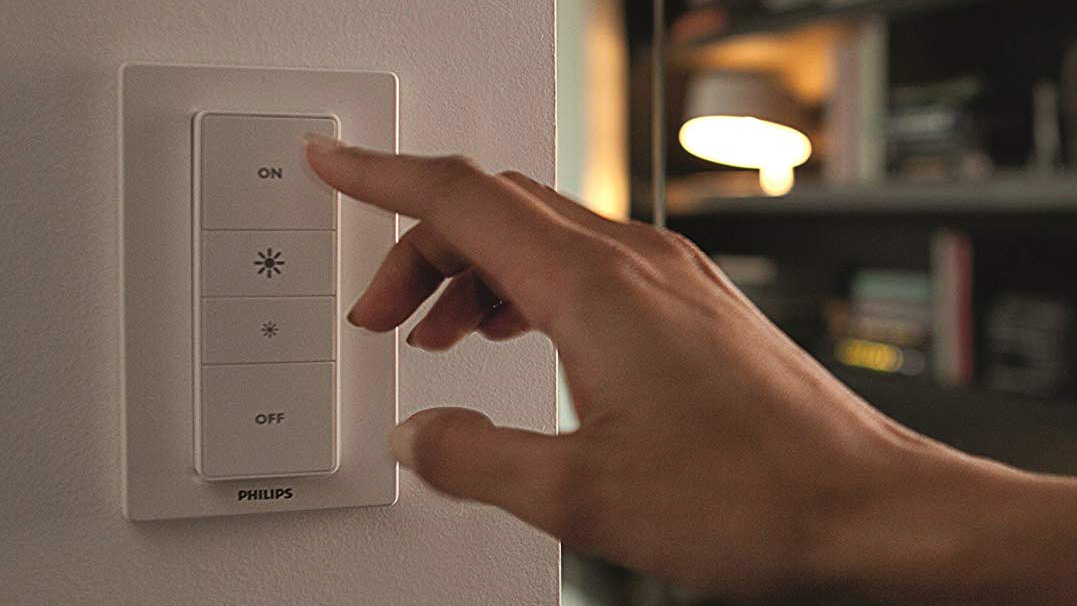
For those who have outfitted their homes with Philips Hue bulbs or don’t want to replace their wall switches, the Philips Hue dimmer is a handy little device. It can be used as a wireless remote or as a wall switch, but this switch doesn’t need any installation, apart from peeling the covering off the adhesive on its back.
This switch works with only Hue bulbs, though it’s almost magic when it does. Just turn on the light containing the Hue bulb as you normally would (even if it’s via a traditional wall switch); then, start using the Philips dimmer, and it will automatically work. And don’t worry — there’s no interference or conflict between the Hue Dimmer and your normal wall switch. The magic in the dimmer lies in the Philips Hue bridge, which is required ($59) for the dimmer to work (and is required for any Philips Hue system).
The Philips Hue app is full of fun controls and creative themes for your Hue bulbs. You can set schedules for your Hue bulbs, which can be controlled by your voice through Amazon Alexa, Google Home and Apple HomeKit. It’s also compatible with a host of other smart home platforms.
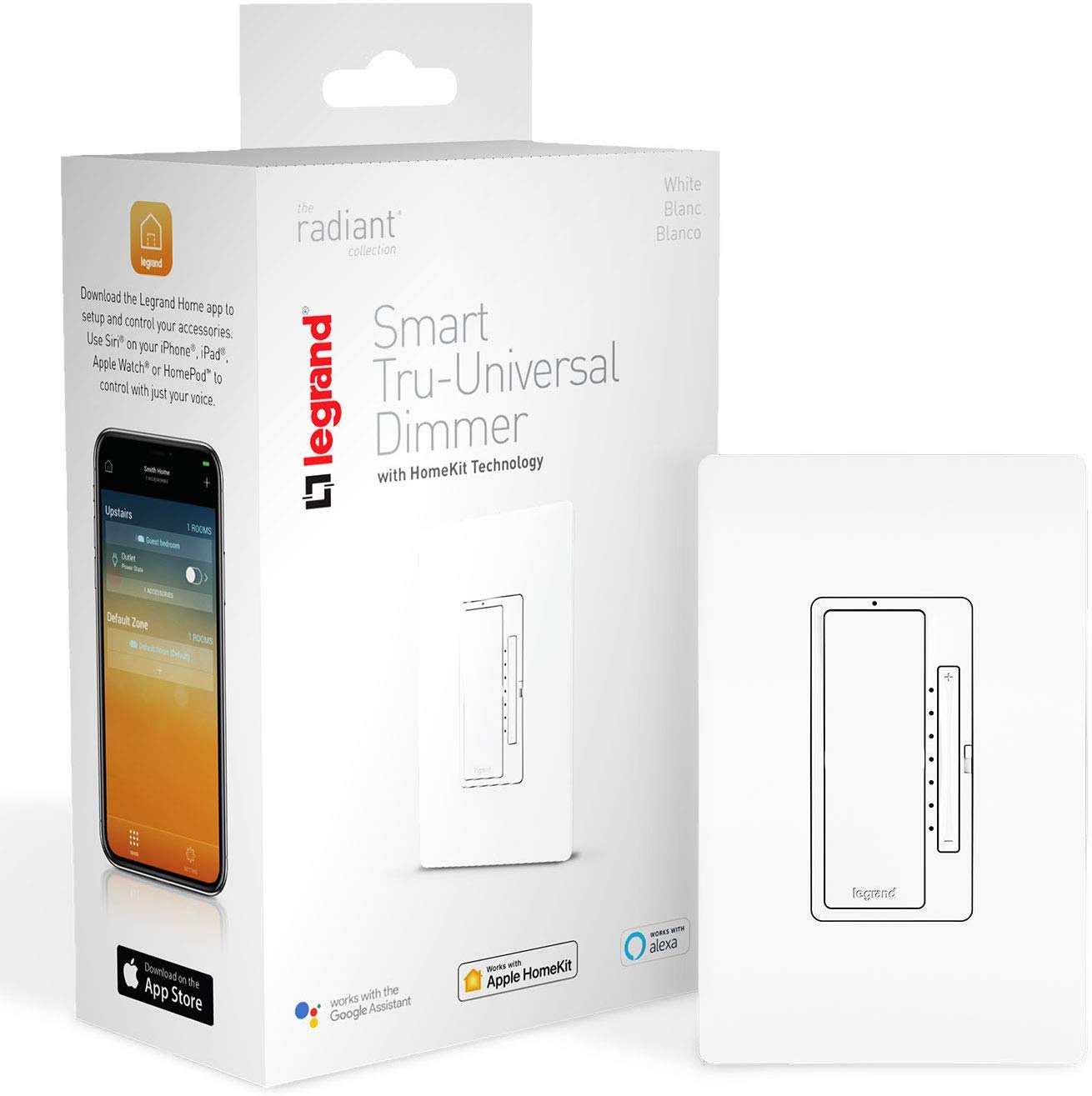
Calling a smart light switch Universal is a bold claim, but this Legrand switch gets pretty close, as it can communicate with the holy trinity of smart home systems: Apple Homekit, Amazon Alexa and Google Home. There’s no direct support for IFTTT or Zigbee devices, though.
The universal moniker also applies to what it is controlling, with Legrand claiming that it auto-detects and calibrates with LED, CFL, halogen, incandescent, and EFL bulbs. It can control up to 450W of LED and CFL or 700W of halogen and incandescent, which should cover most light sources. We tested it with a number of dimmable LED and incandescent sources and found that it worked as advertised, controlling these light sources without problems.
The paddle switch itself has a nice clicky feel to it, but it is smaller than most: those who like to bash paddle switches with the side of their hand may prefer the larger Leviton Decora switches. Next to the main switch is a dimmer switch, along with seven small white LEDs to show the dimming level. Next to this is the air gap switch, a tiny switch that turns the entire switch mechanism off when installing bulbs.
Although the Tru-Universal dimmer lives up to the name, those who use HomeKit may prefer the Leviton Decora DH6HD, which is less expensive.
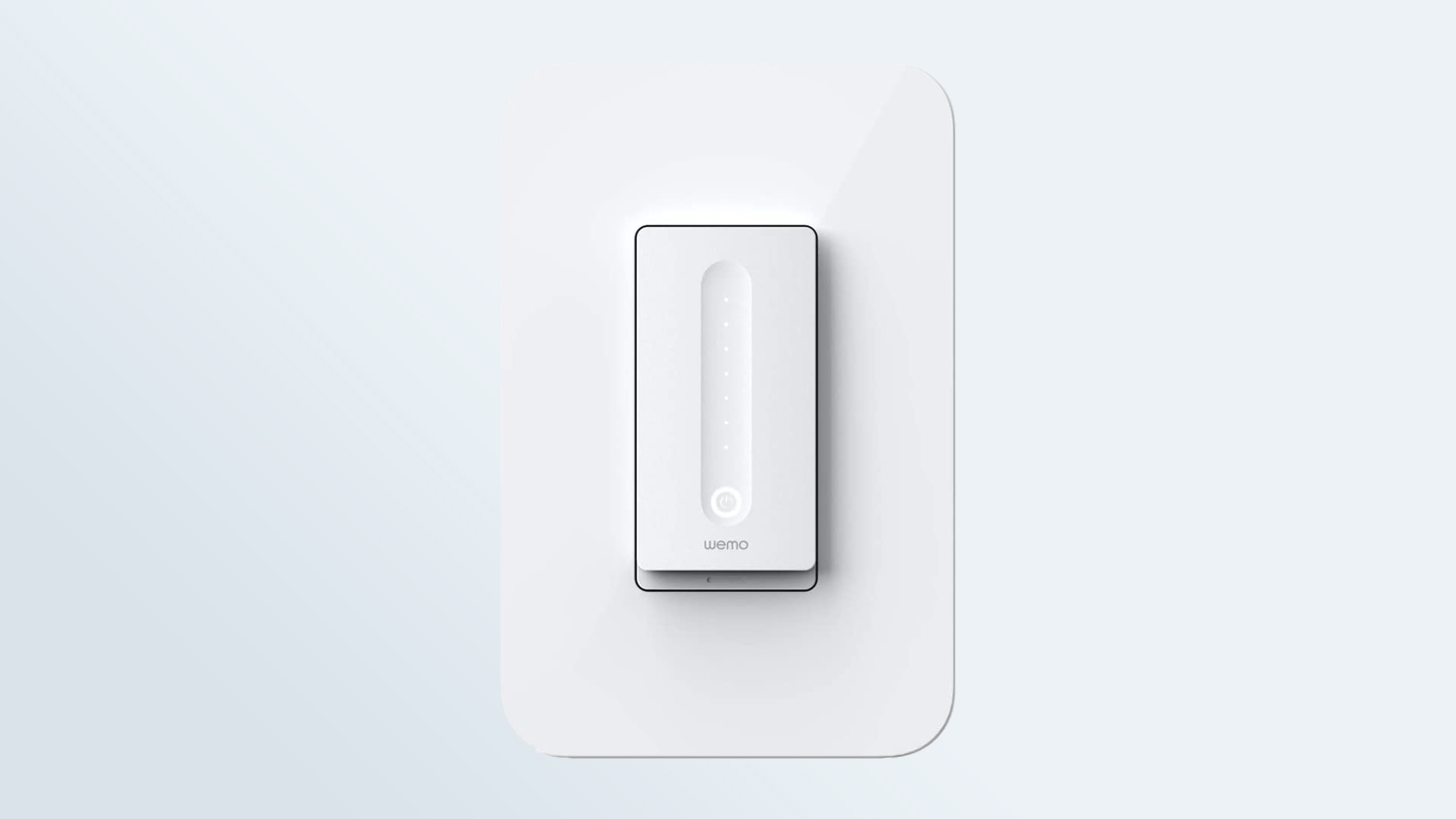
The original Wemo Smart Dimmer had a cool LED status light, good construction, and we liked the app’s different lighting modes, including night mode. This time around, the dimmer loses the big status bar LED at the bottom and uses the ring around its power icon to accomplish the same task, which we believe is the right choice, making it just a little more classy in its appearance.
The switch retains the little finger groove that you slide your finger in to adjust brightness. It’s an intuitive control mechanism that is very satisfying to use — as you slide your finger, little dots along the groove light up to let you know to what percentage brightness you’re setting your bulb. Overall, it has a clean, simple design that even extends to the back of the device, which is now a touch shallower, making it easier to install. The color-coded wires coming from the back make for simpler installation as well.
As regards smart home compatibility, Wemo is broadly compatible, hitting all three major voice assistants and working with IFTTT. Wemo’s dimmer is very responsive to voice commands via Siri, our chosen test assistant in this case. However, certain smart home devices can be very finicky on some networks, and Wemo is no exception: In testing, it routinely became unresponsive to voice commands and the Home app and had to be reset. The problems disappeared when we switched it to a smart-home-friendly mesh network, but it’s worth noting that not all the smart home devices on the previous network had this issue.
If you use the Wemo app, you’ll find some nice features, such as long press to toggle other Wemo devices, and a schedule which sets the switch to a given brightness level if used during certain hours (this is the night mode we mention above). However, the app lacks two factor authentication; given that you can access Wemo remotely, this is inherently less secure. Because the switch retains its core functionality when solely connected to HomeKit, however, we can still recommend it.
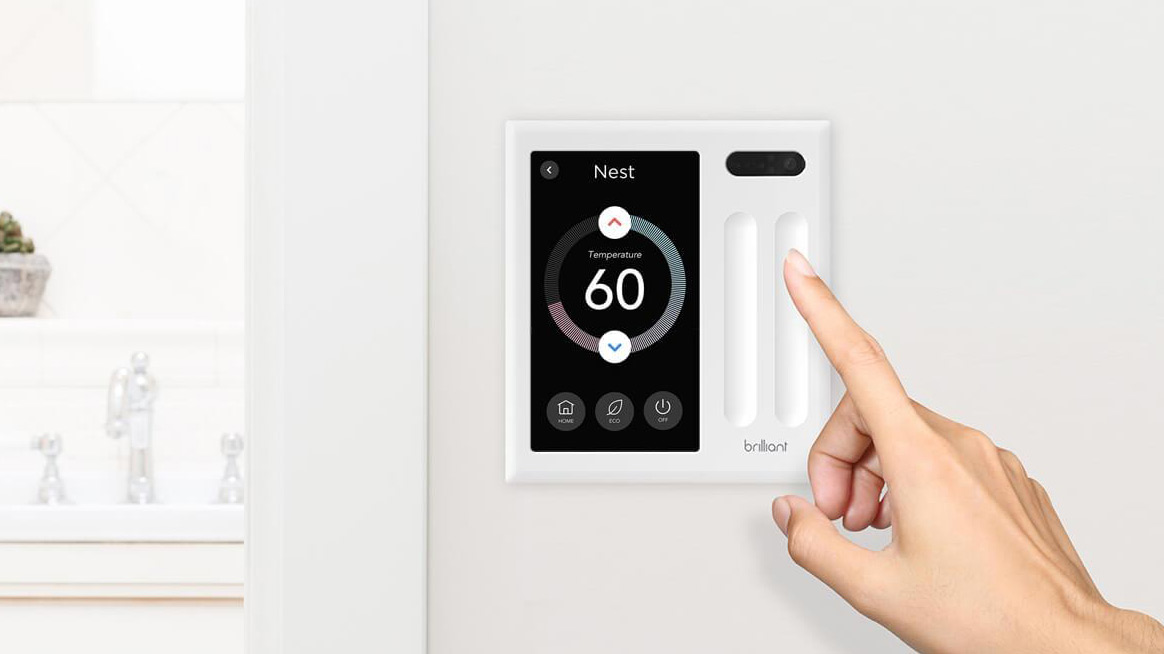
The Brilliant touch-screen light switch lets you control not only your lights, but also other smart home devices, such as cameras, speakers and more. The panel has a large touchscreen, which you can use to look in on your security cameras, play music through smart speakers, and more. A touch-sensitive slider to one side is a simple way to change the brightness of the lights. Brilliant sells models with multiple sliders, in the event you have multiple light groups.
In addition, the panel has built-in motion sensors, so it can turn lights on and off as you enter and leave a room; a small camera lets you use multiple Brilliant panels as video intercoms. The Brilliant panel also works with a wide range of smart home systems, such as Alexa, Google Assistant, HomeKit, Ring, August, Ecobee, Honeywell, Sonos, Philips Hue, and Genie.
However, the Brilliant control panel is expensive, as it starts at $299 for a single-switch panel.
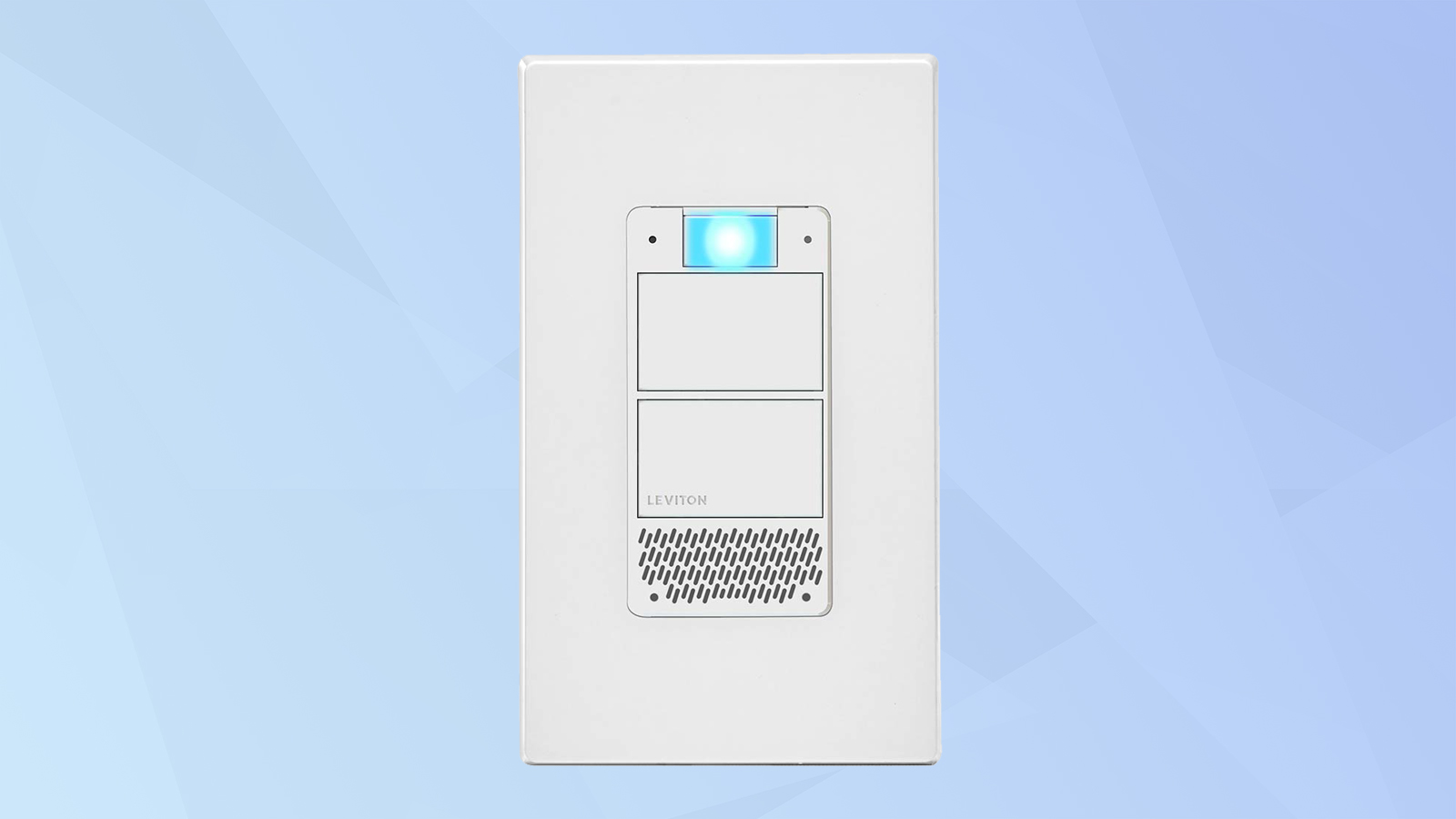
There aren’t a ton of smart switches with Alexa built in, probably because it’s far simpler to just stick an Echo Dot in your room. The Leviton Decora Smart Voice Dimmer with Alexa one-ups the Ecobee Switch+ by the inclusion of a key feature: Dimming. Yes, unlike Ecobee’s on/off switch, Leviton’s lets you incrementally adjust the brightness of your lights.
However, it’s not the prettiest of switches: There are two flat rectangular buttons for turning your lights on and off, and a small mesh grille on the bottom third for the Alexa speaker. A small rectangular LED at the top lights up blue when you engage Amazon’s smart assistant, and a small green LED at the bottom of the switch turns on when your lights turn off, so you can more easily find the switch in the dark.
The Leviton app isn’t the most intuitive, but lets you configure a ton of things: you can specify the bulb type, fade on/off rate, and set the dimming range, too. The switch can also be connected to Alexa, Google Assistant, August, IFTTT. However, it lacks two-factor authentication, which is the bare minimum security measure a company should offer.
The small speaker in the Decora Smart switch is good for asking Alexa the news and weather, but not much else. Like the Ecobee Switch+, it’s small and tinny, so listening to music borders on painful.
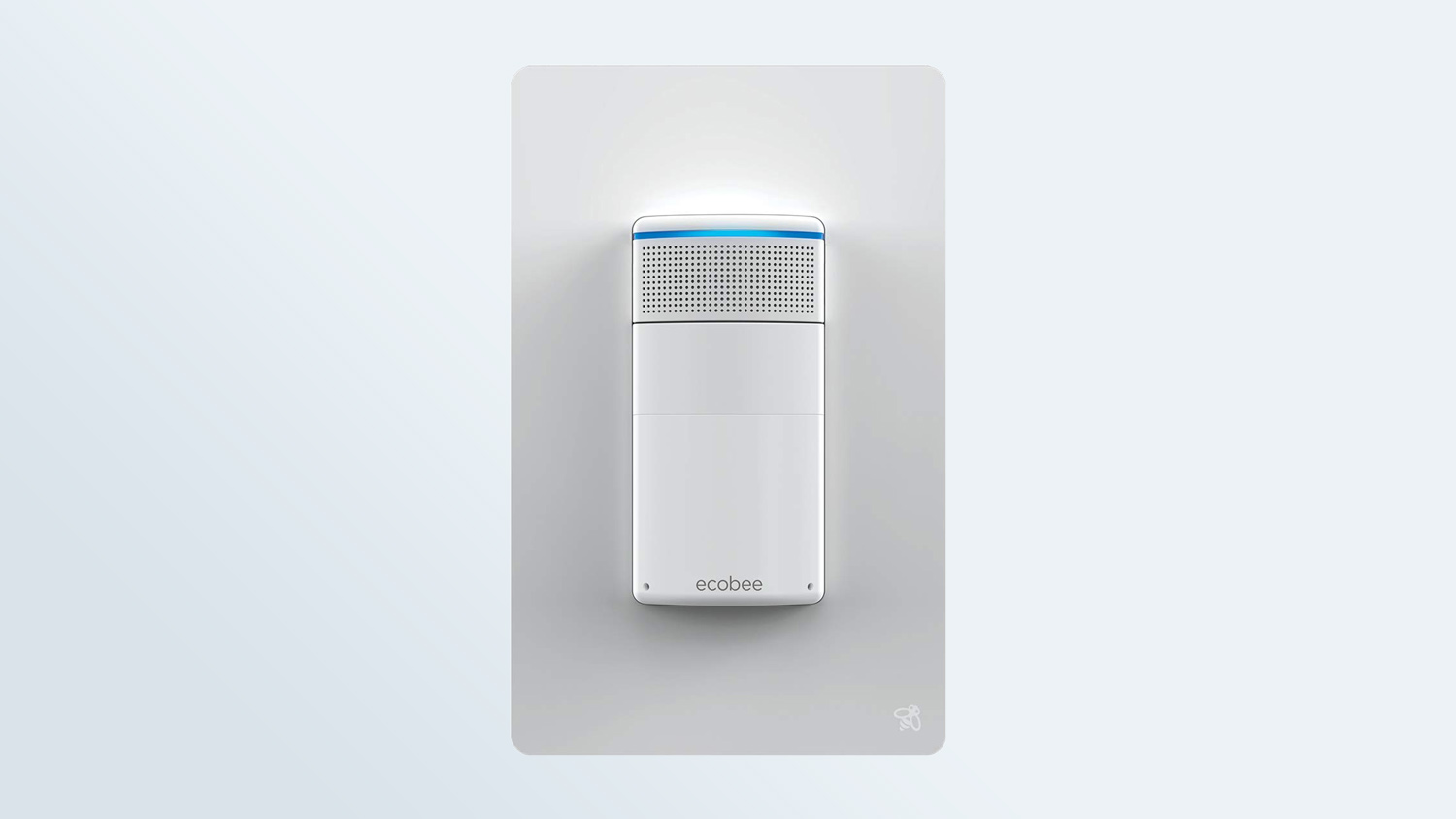
The Ecobee Switch+ has a ton of next-gen features. For starters, a motion detector can automatically turn the lights on and off in a room as you enter or leave. A small night light can be activated to help you find your way in the dark. It also has Alexa built right in (along with a microphone and speaker), so you can more easily use Amazon’s assistant. The speaker is very tinny, so it’s good for brief Alexa queries, but we wouldn’t use it to play music.
The Switch+ also has a temperature sensor, which you will be able to link to the Ecobee thermostat to better control the climate in your house. However, there are a few things that drop the Ecobee Switch+ down in our rankings: There’s no dimming function, you can’t use this switch in a three-way setup, and it requires a neutral wire.
How to choose the best smart light switch for you
Smart light switches vs. smart light bulbs vs. smart plugs
First thing to consider is whether you need a smart light switch or a smart light bulb. The difference is, with a smart light bulb, you can control the bulb itself with your phone, rather than the switch. Because of this, smart light bulbs are a good option if you’re just trying to control a single light. If that’s the case, we’ve rounded up the best smart light bulbs to help you choose.
Smart light switches are a better option if you have lots of bulbs though or multiple rooms you want to control. They also tend to be much more cost efficient than splashing out for lots of smart light bulbs.
If you’re old school and your home is lit via floor and table lamps, then one the best smart plugs is likely the best option for you. You simply connect your lamp straight to it, and then the smart plug into your wall socket, no wiring involved! Smart plugs tend to be less expensive than smart light switches as well.
Wi-Fi, Zigbee, or Z-Wave?
Smart light switches usually connect to your internet via Wi-Fi, Z-Wave, or Zigbee. Through Wi-Fi, your switch links to your router, whereas Z-Wave and Zigbee use smart home hubs. While the latter options mean you will need to purchase a separate hub, it does mean you will still be able to use the smart light switch when the internet is down.
Neutral wire
Some smart light switches will need a neutral wire to work. Homes which were built in or after the 1980’s likely will have one, but older homes might not. Because of this, it’s a good idea to check whether your home has a neutral wire before you make a purchase. If you’re unsure, here’s a breakdown on what’s a neutral wire and what to do if you don’t have one.
Three-way switches
If your lights are controlled by more than one switch, then you will need to invest in a three-way smart switch. These are ideal if you have light switches at both the top and bottom of the stairs for instance.
Dimmer
Some smart switches have a dimmer function, so you can adjust the level of the lights. While these generally cost more than non-dimmer switches, it’s nice functionality to have.
Motion sensor
If you don’t want to bother actually pressing a light switch, then check out models which have built in motion sensors. These can sense your presence in a room and turn the lights on automatically. Just be sure that it’s in a place where it can sense you the entire time you’re in the room, or else it’ll turn the lights off on you!
Smart home connectivity
Most smart light switches will work with Alexa, Google Assistant, or Apple HomeKit, so you can connect them to other smart home devices, and control them using your voice.
Away Mode
This is a feature we like: If a smart light switch has this feature in its app, it will automatically turn your lights on and off randomly while you’re away, to make it look like you’re home.
How to install a smart light switch
Unlike most smart home devices, which merely require you to plug them into an outlet, installing a smart switch involves replacing a current in-wall switch. Since few, if any, light-control products include professional installation as part of the package, you will need a basic understanding of electrical work, which includes turning off the circuit breaker. For full wireless access, you then replace the entire existing unit with the smart switch by attaching all the wires to the new switch, including the neutral wire.
Smart switches are often bulkier than their traditional counterparts, however; so if they don’t fit in the electrical box properly, you may need to get a new box, which is probably a job for an electrician. Similarly, some older homes don’t have the right wiring, so an electrician is a good idea here, too. Finally, some smart switches won’t work if you have multiple switches controlling a single light (which is called three-way or four-way lighting).
How we test smart light switches
To test smart switches, we either installed them ourselves, or had an electrician install them in our house. We then evaluated the switches based on the following criteria:
- Design: Is it an attractive switch? The best will come in multiple colors to best match your decor.
- Functionality: Does it support three-way or four-way connections?
- App: How easy was it to use the app that works with the switch? What sort of features do you get, such as scheduling when lights turn on and off?
- Smart Home Compatibility: Does the switch work with other smart home devices? How many?
- Price: While smart light switches are more expensive than traditional switches, some are pricier than others.
For all the latest Technology News Click Here
For the latest news and updates, follow us on Google News.
